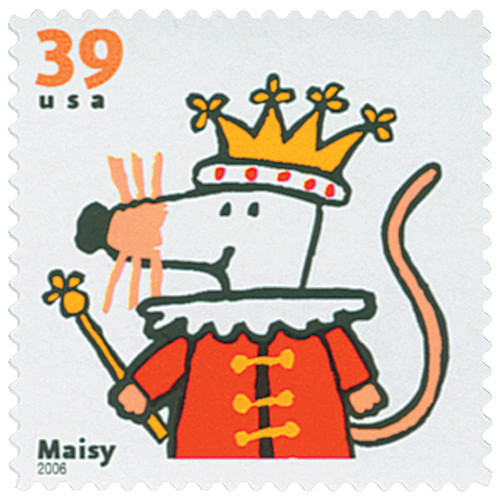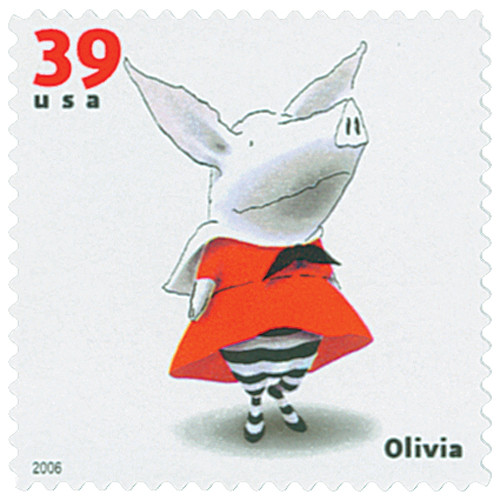
2006 39c Children's Book Animals: The Very Hungry Caterpillar
# 3987 FDC - 2006 39c Children's Book Animals: The Very Hungry Caterpillar
$2.50 - $2.95
U.S. #3987
Favorite Children’s Book Animals
The Very Hungry Caterpiller
Favorite Children’s Book Animals
The Very Hungry Caterpiller
Issue Date: January 10, 2006
City: Findlay, OH
Quantity Issued: 192,000,000
City: Findlay, OH
Quantity Issued: 192,000,000
Before the 1800s, the child was seen as a miniature adult, and few authors wrote books for children. Most of these early children’s books were lesson books.
In the 1800s, talented authors and illustrators began creating books to entertain children. By the mid-1800s, color illustrations began appearing widely in children’s books, partly due to advances in color printing.
Children’s literature flourished in the 1900s with more books written than in all the previous centuries. Picture books for young children were produced in large numbers. In the mid-twentieth century, books for beginning readers appeared, with simple stories and limited vocabularies. Theodor Seuss Geisel (Dr. Seuss) was one of the first authors to create such books.
The subject matter of children’s literature covers the people, objects, toys, animals, and fantasy creatures that live in a child’s real and imaginary world. The 2006 “Favorite Children’s Book Animals” stamps picture creatures from Eric Carle’s The Very Hungry Caterpillar, E.B White’s Charlotte’s Web, Dr. Seuss’ Fox in Socks, Lucy Cousins’ Maisy’s ABC, Maurice Sendak’s Where the Wild Things Are, Margret and H.A. Rey’s Curious George Flies a Kite, Ian Falconer’s Olivia, and Leo Lionni’s Frederick.
U.S. #3987
Favorite Children’s Book Animals
The Very Hungry Caterpiller
Favorite Children’s Book Animals
The Very Hungry Caterpiller
Issue Date: January 10, 2006
City: Findlay, OH
Quantity Issued: 192,000,000
City: Findlay, OH
Quantity Issued: 192,000,000
Before the 1800s, the child was seen as a miniature adult, and few authors wrote books for children. Most of these early children’s books were lesson books.
In the 1800s, talented authors and illustrators began creating books to entertain children. By the mid-1800s, color illustrations began appearing widely in children’s books, partly due to advances in color printing.
Children’s literature flourished in the 1900s with more books written than in all the previous centuries. Picture books for young children were produced in large numbers. In the mid-twentieth century, books for beginning readers appeared, with simple stories and limited vocabularies. Theodor Seuss Geisel (Dr. Seuss) was one of the first authors to create such books.
The subject matter of children’s literature covers the people, objects, toys, animals, and fantasy creatures that live in a child’s real and imaginary world. The 2006 “Favorite Children’s Book Animals” stamps picture creatures from Eric Carle’s The Very Hungry Caterpillar, E.B White’s Charlotte’s Web, Dr. Seuss’ Fox in Socks, Lucy Cousins’ Maisy’s ABC, Maurice Sendak’s Where the Wild Things Are, Margret and H.A. Rey’s Curious George Flies a Kite, Ian Falconer’s Olivia, and Leo Lionni’s Frederick.












